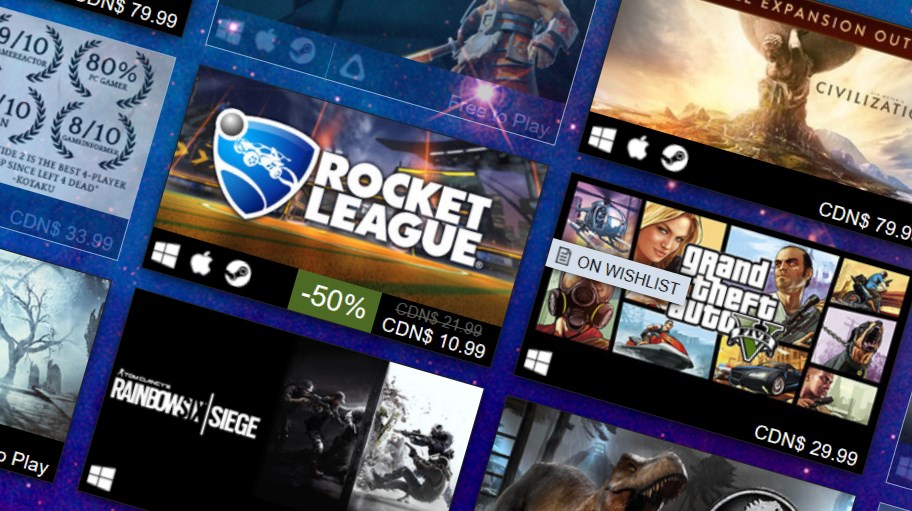
So you’ve got your rig all set up, and now you just need some sweet, sweet software to feed it. But where's the best place to buy PC games? Long-time PC gamers know that there's more to it than just signing up for a Steam account.
Steam is ubiquitous and monolithic, but has disadvantages. There are other storefronts that sell game codes redeemable on Steam for less than the Steam store’s price, or grant a better cut to developers. And there's so much more to PC gaming than what's on Steam, with distributors like GOG and itch.io providing exciting alternatives.
Here's what you need to know about buying downloadable PC games.
Steam
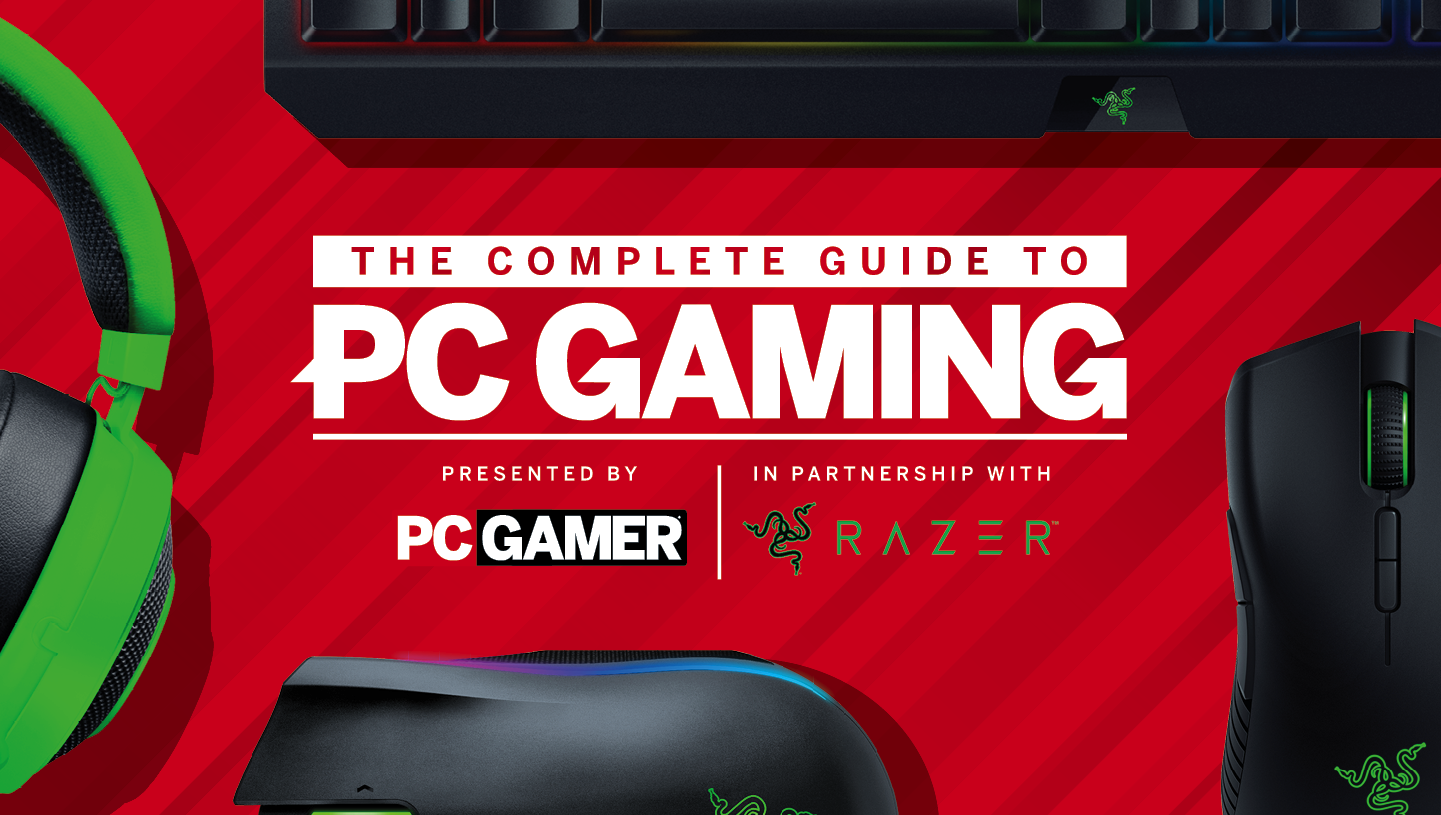
PC Gamer is going back to the basics with a series of guides, how-tos, and deep dives into PC gaming's core concepts that we're calling The Complete Guide to PC Gaming. There's much more to come, and it's all being made possible by Razer, which stepped up to support this months-long project. Thanks, Razer!
Steam is the big dog around town. You’re very unlikely to find an avid PC gamer who doesn’t have a Steam account, and the Steam storefront sells more PC games than any other digital outlet. It’s convenient, fairly comprehensive, and regularly runs massive sales in which many games can be discounted anywhere from 10 to 80 percent off, or even more for some older stuff.
The big sales to watch out for are the Summer Sale (usually in late June/early July), the Halloween sale (late October), the Autumn Sale (late November), the Winter Sale (late December/early January), and the Spring Sale (most recently ran in late May). These typically feature a huge number of games on deep discounts, including new releases. They also have a year-round rotating selection of weekly, daily, and weekend deals on a smaller number of games.
What are the drawbacks? Well, Steam uses an in-house DRM that forces you to launch a game in online mode before you can play it offline, and allows third-party DRM from publishers who sell their games on Steam that may require an always-on connection. It also has so many games on it at this point that it can be hard to find those gems that are really worth playing but don’t enjoy the backing of a major publisher or marketing team among all the noise. Valve’s efforts to curate the storefront have been largely hands-off and lacklustre, allowing large numbers of low-quality games to make it onto the store.
Steam also takes a 30 percent cut of all sales. That’s not unusual or excessive, necessarily, but there are other ways to obtain many games that give more support directly to the developer if you care to do so.
Keep up to date with the most important stories and the best deals, as picked by the PC Gamer team.
What about other stores that sell Steam keys?
Every game you buy on Steam has an associated, one-time-use key that unlocks it for play. While the most straightforward way of getting such a key is by buying a game directly from Steam (in which case you don't need to enter a key), it’s not the only way. Steam gives out batches of keys directly to publishers and developers who can then sell them to you.
One advantage to this, especially if you’re buying directly from a developer or publisher’s web store, is that it bypasses the 30 percent cut Valve normally takes and thus gives more support to the people who actually made and marketed the game. They also sometimes offer better deals on certain games than Steam does, especially if it’s a developer or publisher selling their own stuff.
What are key resellers?
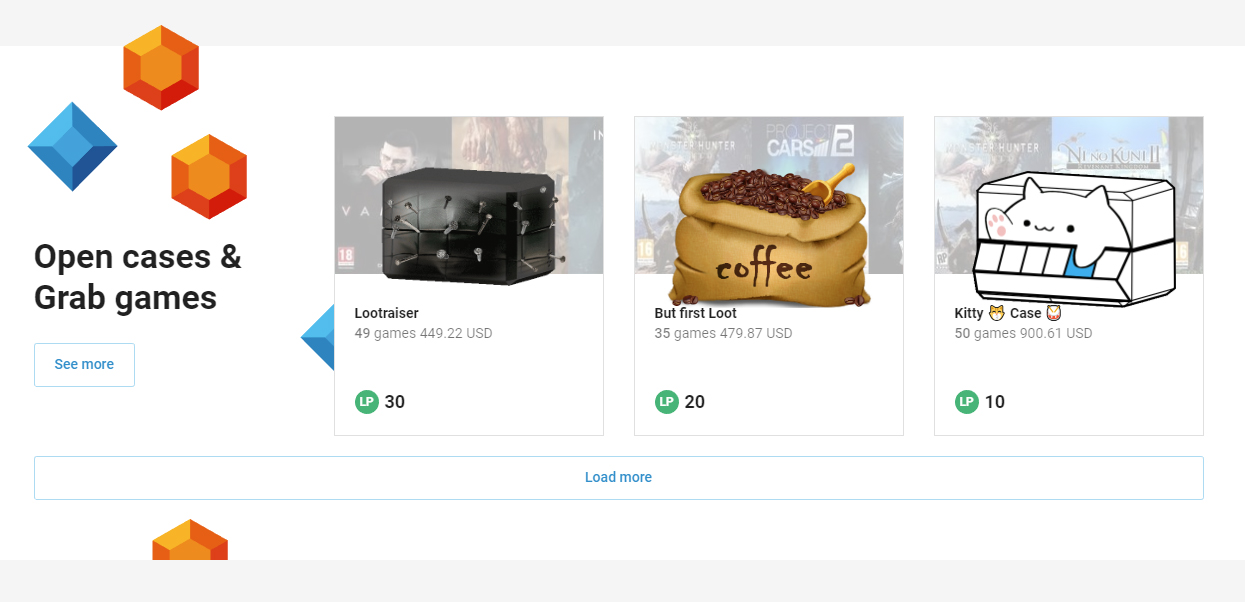
Key resellers, like G2A and Kinguin, are a bit different in that they operate almost like a flea market. A person or group who have somehow come into possession of Steam keys that haven’t been activated can post them on a reseller site at a price of their choosing, keeping most of the profit (minus a percentage and a small listing fee to the site). The issue there is that there isn’t an airtight way of vetting where the resellers that use these sites as a listing service got those keys, just like it can be difficult to determine whether or not the bike you’re looking at on Craigslist was jacked from a community college two counties away. Most of these sites also don’t have any sort of vetting process for new sellers, and only investigate illegal activity after an issue arises and has been reported by a concerned customer or developer. The key you bought could just be an extra copy someone got from a bundle of a game they already own, but it’s also entirely possible that it was purchased illegally using a compromised account or stolen credit card info.
The prices are often much better than even Steam’s most generous sales, but you run the risk of supporting shady black marketeers if you’re not careful—especially if they seem to be offering a lot of “too good to be true” deals on newer games. Resellers also don’t give a cut to the developers, just like GameStop doesn’t cut From Software a check if they resell your used copy of Dark Souls on console. If it is found that the key you bought was obtained illegally, a chargeback on a stolen card could lead to your key being revoked and the developer taking a financial hit.
The important thing to note here is the difference between a retailer and a reseller. The former, such as Fanatical, gets their keys directly from publishers, so there is usually no question that they are legitimate. A reseller works with third-party keyholders and often has limited ability to determine where the keys come from.
GOG
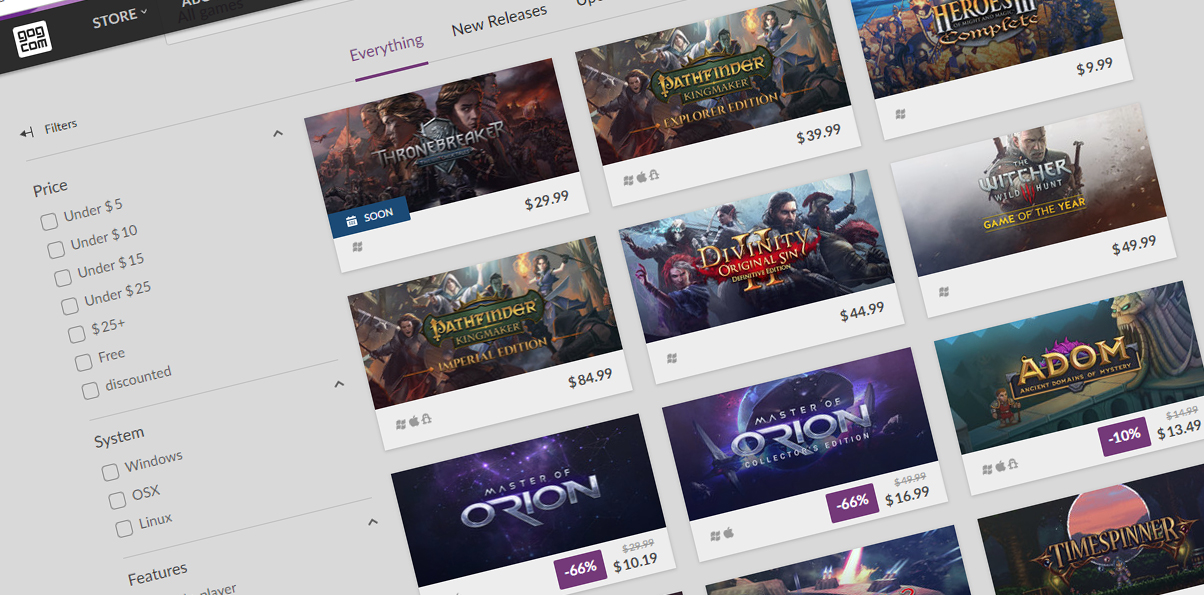
GOG is owned by CD Projekt, the parent company of the studio responsible for the Witcher games and Cyberpunk 2077. Their claim to fame is that everything on their storefront is DRM-free. You can download Wing Commander 3 on your office computer, copy it to an external hard drive, take it to a bunker at the bottom of the Atlantic Ocean with no internet access, load it up on a Windows 98-powered, off-the-shelf tower from a department store that doesn’t exist anymore, and you won’t be hassled about logging in or verifying anything.
GOG also has a wide selection of classic games, some of which have never been available on Steam or anywhere else online, and they’re all optimized and tested to run fairly hassle-free on modern hardware—which may not be the case with a CD-ROM copy you bought when the Spice Girls were on a roll. Most also include PDFs of the original manuals and box art, and often the original soundtrack in a DRM-free file format, which can be even harder to find than the games themselves.
Like Steam, GOG takes a 30 percent cut on sales of games not made by one of its studios.
Itch.io
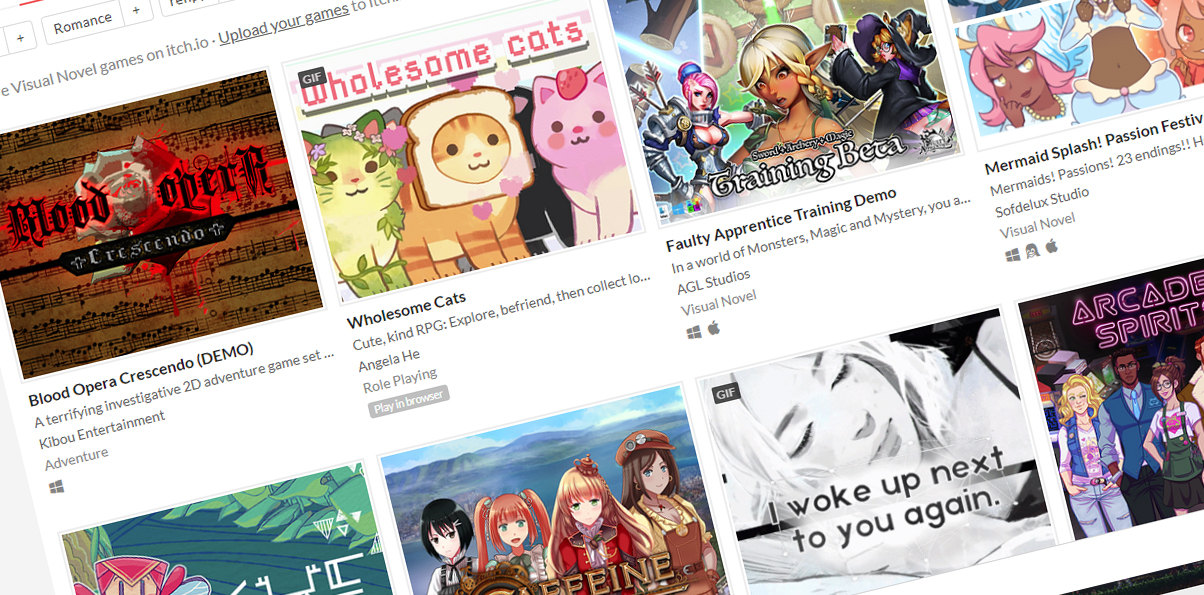
Itch.io is the quirky, whimsical, indie rock storefront of the PC games world. It rose to cult acclaim as a place where underground devs could post their small, experimental projects free or very cheap in a place where players looking for something new and weird could stumble upon them. The Randomizer feature can be used to put the store on shuffle, letting you experience a seemingly endless supply of new games that you wouldn’t find on any other store. Many are free or available with a 'name your own price' download, and the developer can decide what percentage of sales goes to Itch.io—even zero.
More recently, Itch.io has started selling Steam keys to more well-known commercial indie games as well.
Humble
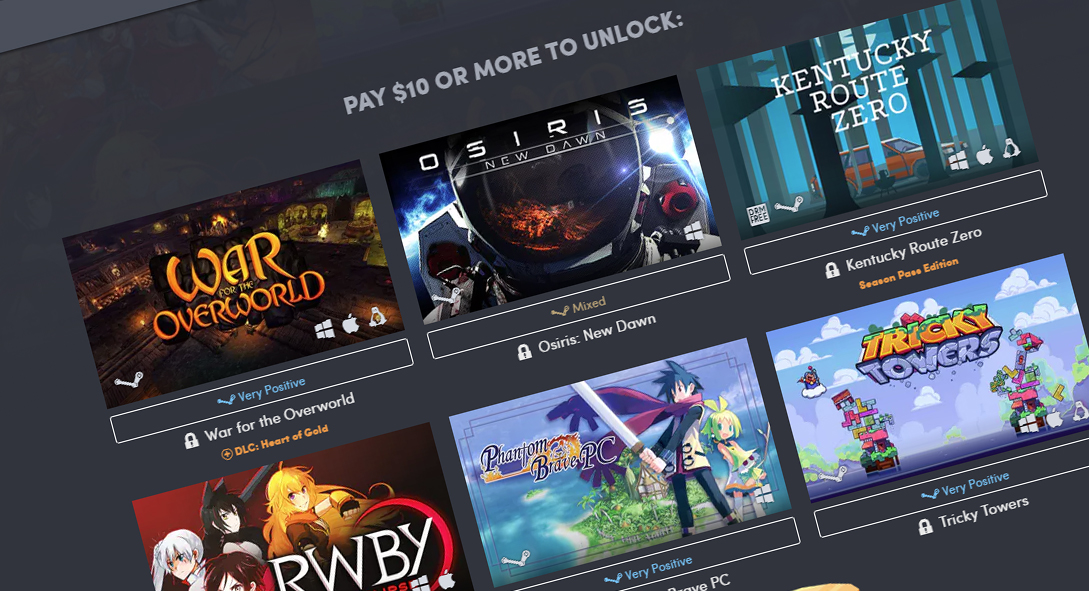
Humble is a storefront owned by IGN Entertainment (where the author of this article sometimes writes on a freelance basis), but grew out of the Humble Bundle, a rotating grab bag of games that can be purchased together for a discounted price. These bundles are typically available with a “name your own price” system, while paying more than the average or more than a certain amount will add more games or goodies to the bundle. Purchasers of these bundles can also customize how much of their money goes to the developers, how much goes to Humble, and how much is donated to a few selected charities.
Outside of selling bundles, Humble’s storefront usually provides keys to other platforms like Steam, and it has a monthly subscription service. The difference here is that 10 percent of the sale is always donated to charity, while Humble takes 15 percent. This leaves 75 percent for the developer, which is slightly more than if you bought from Steam directly.
First-party services
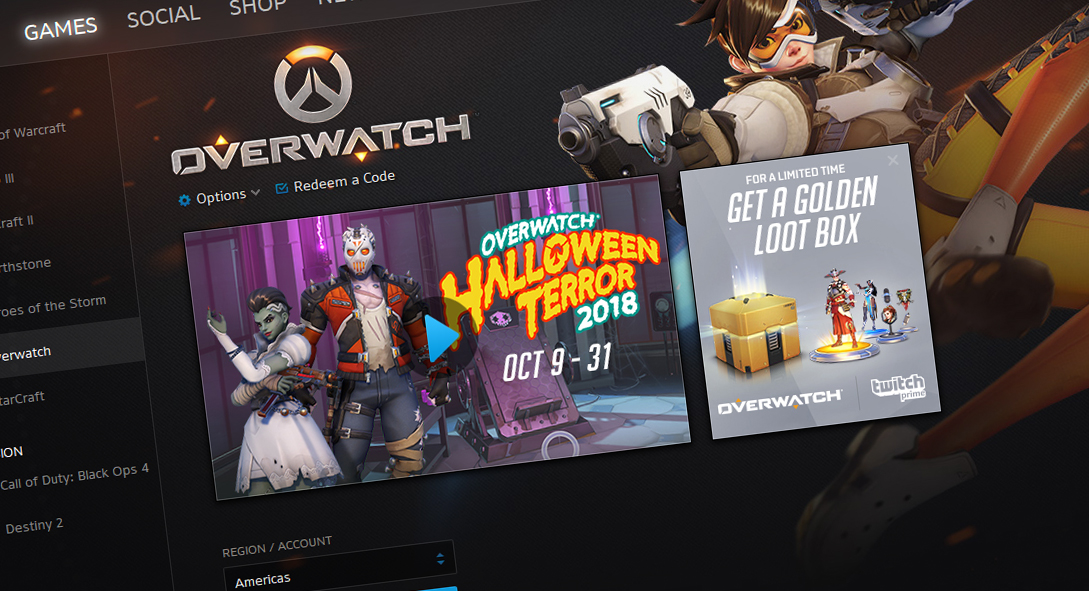
First-party services like Ubisoft’s uPlay, EA’s Origin, and Blizzard’s Battle.net are limited in that they primarily carry products from one publisher and don’t often feature sales as significant as other retailers. However, many flagship franchises are only available by going through them. EA is particularly fond of this approach. If you want to play the latest Battlefield, you’ll only be able to purchase it on Origin or via an Origin key.
Ubisoft takes a bit of a different approach—many of its games are available for purchase on Steam or through a Steam key but require you to log into a uPlay account simultaneously to run them, which can be a bit of a hassle. There is no separate share that goes to the storefront in these cases, since the publisher and the storefront are the same company.
The Microsoft Store, which comes installed with Windows, is where you have to go to buy Microsoft-published games, unfortunately—it's by far the worst-designed store of the lot. But at least Microsoft is now putting games that would've been Xbox exclusives in the past, such as Forza Horizon 4, on Windows 10.
Green Man Gaming
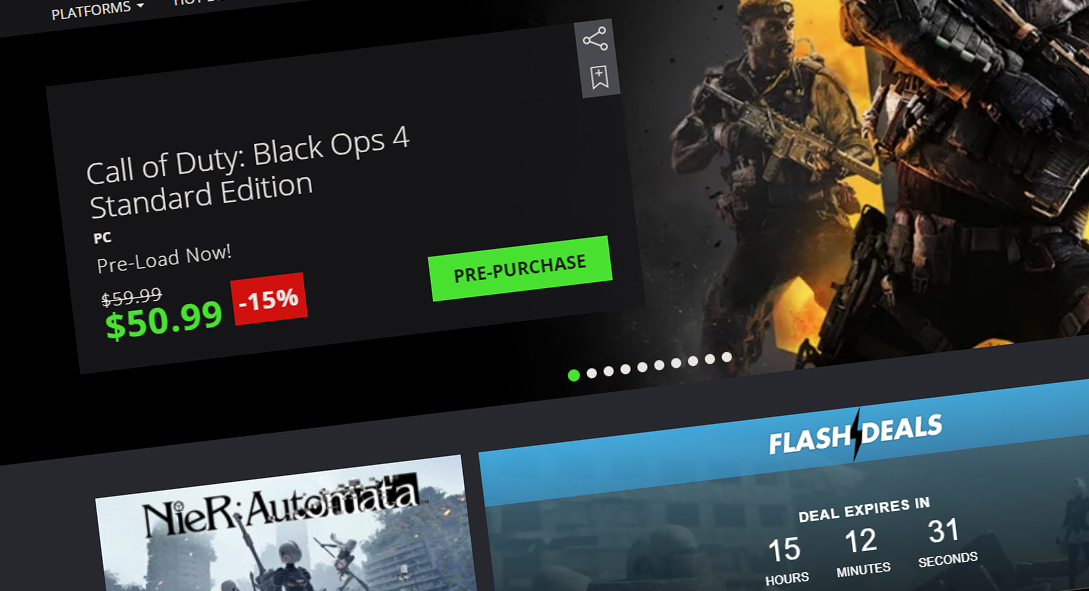
Green Man Gaming is one of the largest key retailers (meaning, as mentioned above, they obtain their codes right from the source and are not a reseller) and often sells Steam keys cheaper than you could get them on Steam. One significant difference with GMG's model is that when a game goes on sale, the discount is taken out of its 30 percent cut first. If you buy a game for 25 percent off on Steam, Steam still takes 30 percent of the remaining amount of the sale. GMG would only take 5 percent in that case, leaving untouched the full 70 percent cut that would normally go to the developer if the game weren't on sale.
As a key retailer, GMG is among those that have suffered from running out of keys in the past. This doesn’t happen with great regularity, but it’s possible that purchasing a new, highly in-demand game through them can result in having to wait for a new batch of keys.
Amazon
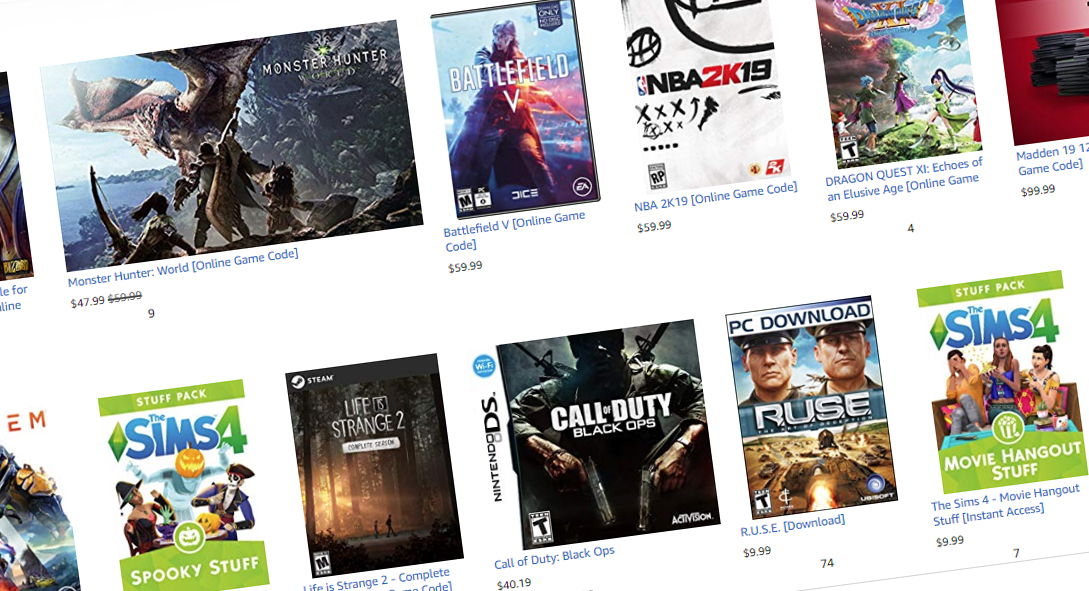
'Big box' online retailers like Amazon also sometimes have really good deals on PC games (usually, you’re just buying a Steam key), and occasionally have boxed copies of older games available through their partners for those who care a lot about physical stuff. You can expect to pay a premium for anything in good condition with the original manuals, though. Amazon also doesn’t publicize how much of a cut it takes of digital game sales.
For a more detailed breakdown of some of these options, check out our comparison of PC game storefronts.
Len Hafer is a freelancer and lifelong PC gamer with a specialty in strategy, RPGs, horror, and survival games. A chance encounter with Warcraft 2: Tides of Darkness changed her life forever. Today, her favorites include the grand strategy games from Paradox Interactive like Crusader Kings and Europa Universalis, and thought-provoking, story-rich RPGs like Persona 5 and Disco Elysium. She also loves history, hiking in the mountains of Colorado, and heavy metal music.

